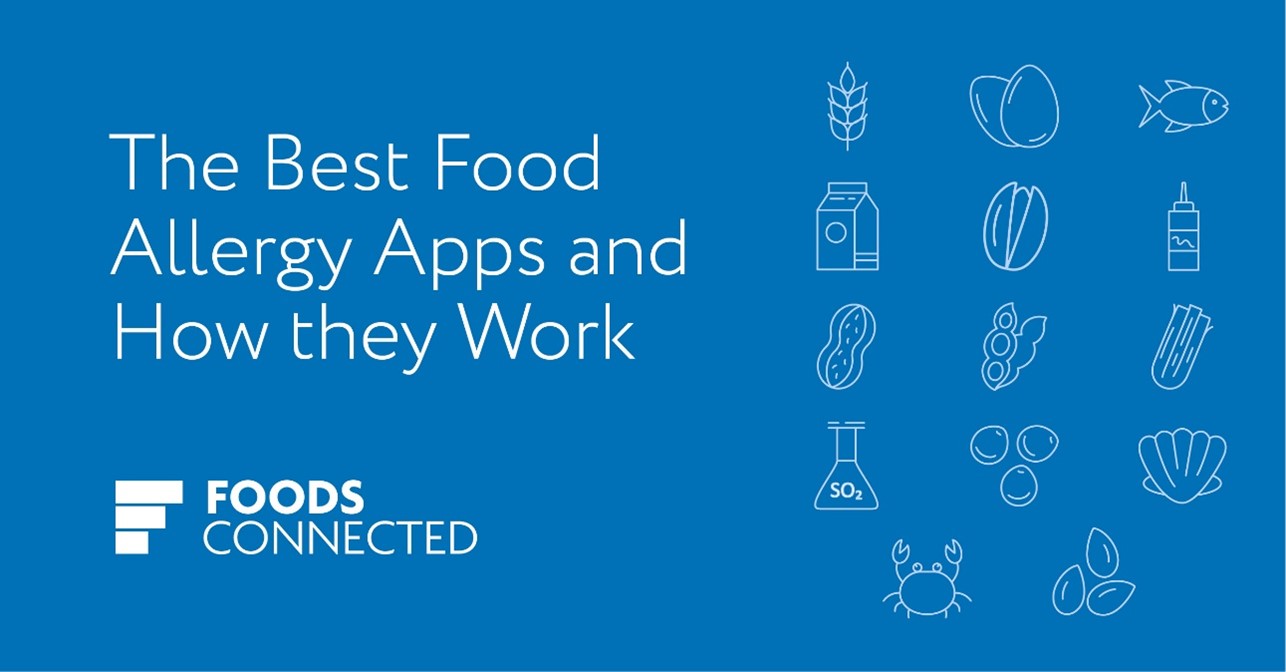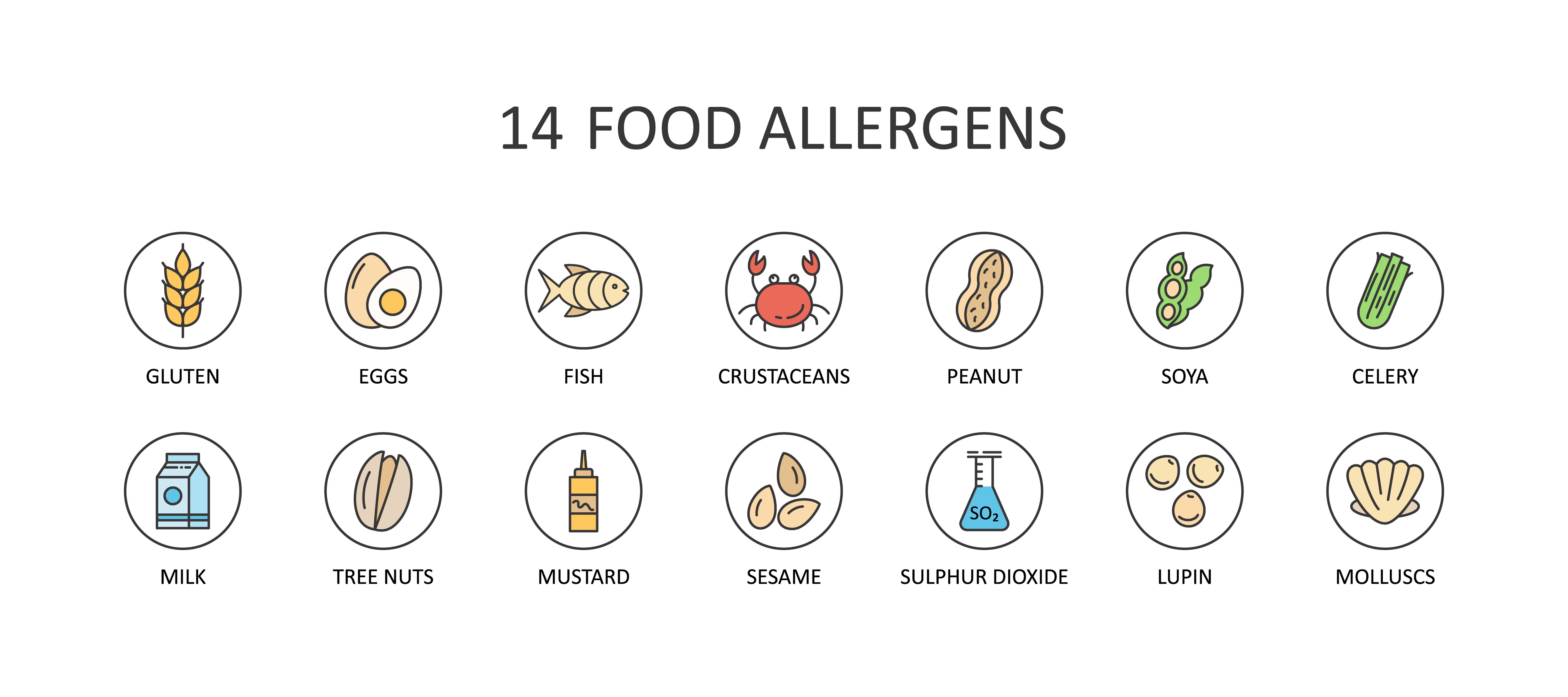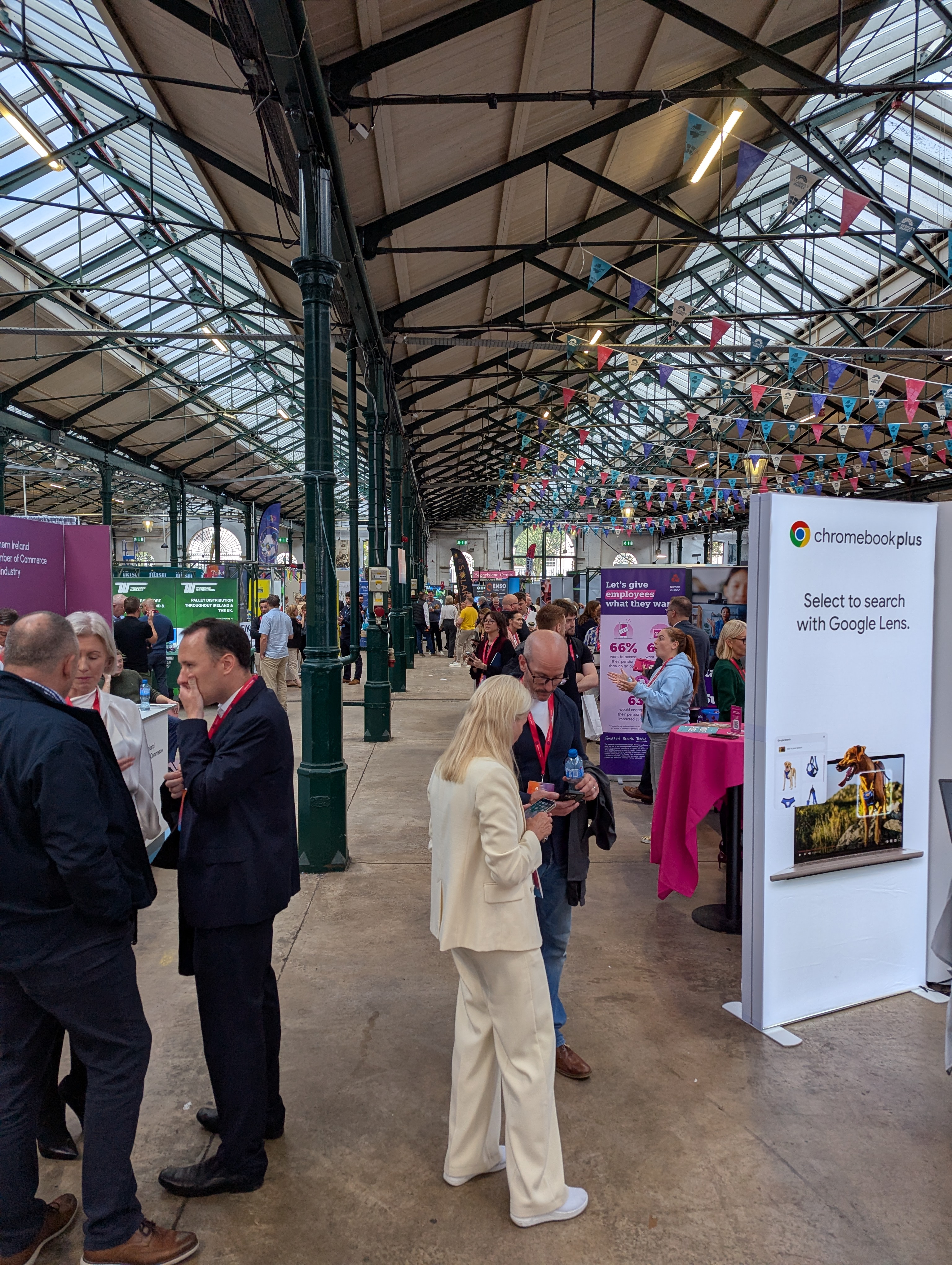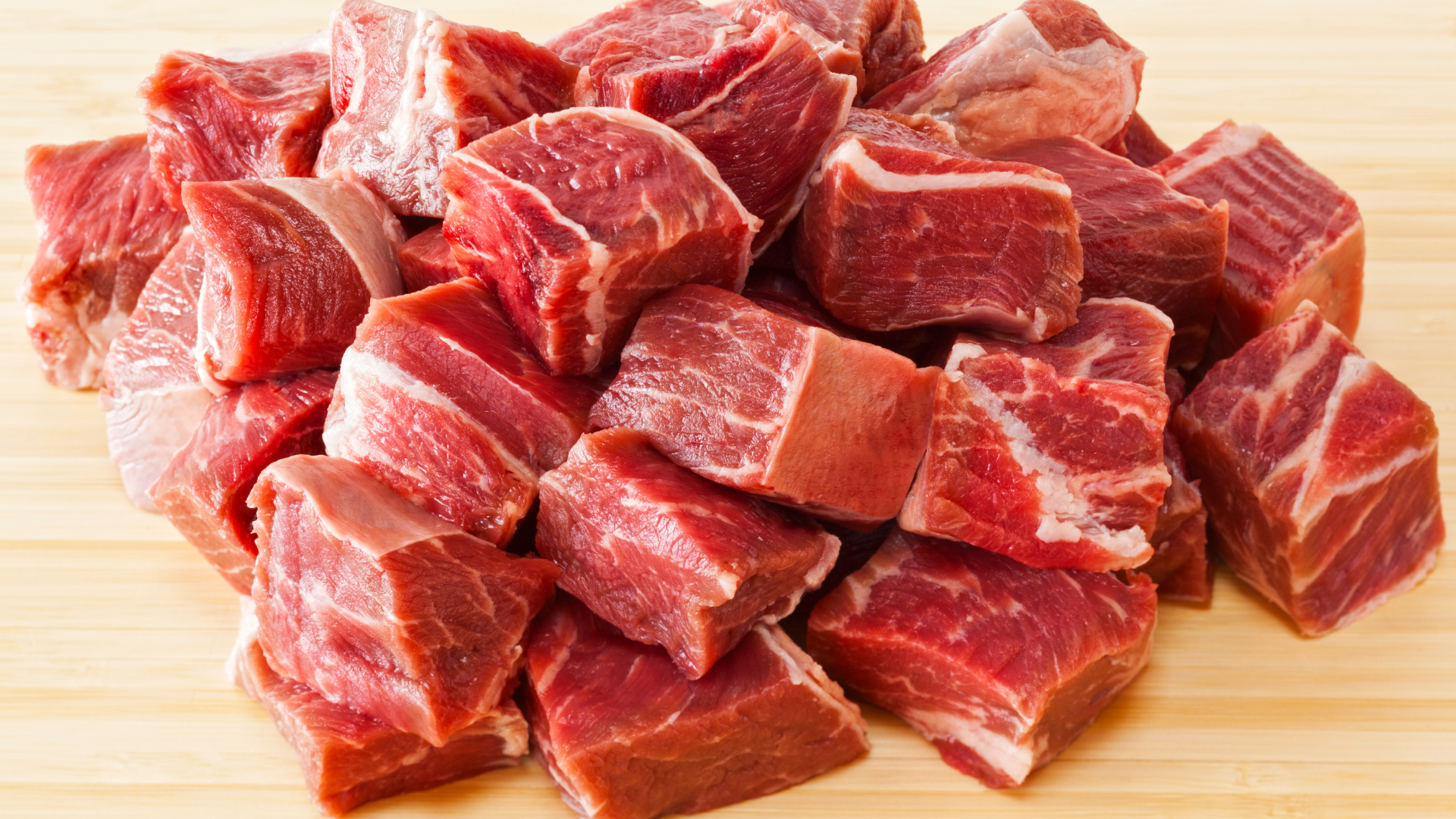
With Natasha’s Law in place in the UK and a growing focus on dietary requirements since the Covid-19 pandemic, the visibility and management of allergen information is increasingly becoming a priority for food businesses to ensure compliance with food labelling requirements and consumer safety.
Food allergies now affect a large percentage of the global population, with consequences ranging from minor to life-threatening. For this reason, implementing safe and allergy-friendly food systems is an important public health measure. While there are many steps businesses can take to tackle allergens within their processing plants and distribution centres, there are now mobile apps that can provide consumers with full transparency around what they’re buying, for greater peace of mind.
What is a food allergy?
While this may seem obvious, it is important to distinguish between food allergies and intolerances. The Centers for Disease Control and Prevention (CDC) states that a food allergy “occurs when the body has a specific and reproducible immune response to certain foods”.
The UK’s NHS says while allergies are a reaction by your immune system and can be life-threatening, food intolerances do not involve the immune system and are never a threat to life. In the UK, the Food Standards Agency has listed out the 14 main allergens: celery, cereals containing gluten, crustaceans, eggs, fish, lupin, milk, molluscs, mustard, peanuts, sesame, soybeans, sulphur dioxide and sulphites and tree nuts.
Allergies are often limited to particular foods and can trigger symptoms quickly after just eating a small amount of the food. But an intolerance can be caused by many different foods and only results in gradual symptoms if you eat a substantial amount of the food.
That said, allergy and intolerance apps can help people from both groups with finding safe food products in grocery stores and even restaurants. Here are some of the best food allergy apps and how you can use them.

Yummly
Not solely a food allergy app, Yummly was founded in 2009 as a personalised recipe recommendation tool. It allows users to search for recipes based on ingredients the user doesn’t want or can’t consume, whether that’s meat, poultry, fish, dairy, nuts, or something else.
Allergy sufferers can select the ingredients they’re allergic to, filter through cuisines and pick recipes based on their selected cooking skill. Users can set up a profile with their allergies, intolerances and preferences, and Yummly will show them suitable recipes that they can add to a virtual personal cookbook and build grocery lists with.
Food Intolerances
Widely regarded as one of the best food allergy apps around, Food Intolerances is a “histamine, FODMAPs and IBS guide” created by German developer Baliza.
Food Intolerances shines a light on the science behind food intolerances, including lactose, fructose, sorbitol, histamine, tyramine and aspirin intolerances. The app is based on scientific data and allows users to check exactly what makes up an ingredient and how that can affect your food intolerance.
By offering different profiles and a four-tiered intolerance rating system for everyday foods, it helps you adapt to your needs and avoid foods that may ill-affect you.
Avoid
The newest app on this list, Avoid was created by a British university student to help people with specific dietary requirements choose the right food for them.
Coventry University student Jake Sarkar created the app over two months to make it easier for consumers to check if the food they’re buying matches their dietary needs — for example, vegans and lactose-intolerant people. However, it should be noted that the app isn’t designed as a primary safety measure for serious allergy sufferers.
The app makes use of the Open Food Facts database, which is a crowdsourced directory of global food products containing any unwanted ingredients. Users can input their dietary requirements in the app and use it to scan barcodes of products in stores. As a bonus, it also has a feature to check if your pet dog can eat your leftovers.
AllergyEats
While only available in the US, AllergyEats is amongst the best allergy apps available. What makes it unique is that the focus is on allergy-friendly restaurants.
AllergyEats allows users to find restaurants that are suitable for a variety of allergies, with a convenient list of nearby eateries ranked by how allergy-friendly they are. Founded in 2010 by Paul Antico, who found it difficult to find restaurants safe for his three children with food allergies, it analyses menu items that are safe to eat and lists restaurants in major cities as well as attractions like Walt Disney World.
The Gluten Free Scanner
This is a one-stop-shop for coeliacs and people suffering from gluten intolerances. The Gluten Free Scanner keeps it simple, with a barcode scanner capable of analysing more than 500,000 products in the US and 150,000 in the UK on four levels.
The app’s full version has features that allow you to search by product name, brand or category as well as safe and unsafe ingredients. It’s managed by a team of registered dietitians, nutritionists and researchers. The app allows people to check ingredient lists for gluten and can also help family and friends cater for loved ones who suffer from gluten allergies and intolerances.
Natalie Thorpe
A graduate of Letterkenny Institute of Technology, Natalie studied Visual Communication and Graphic Design. When she's not creating up new designs for company materials and branding, writing, compiling marketing plans or implementing new UX strategies, you'll find her roaming a deserted beach in search of her disappearing dog, or soaking up different cultures on her globetrotting adventures!
Stay up to date
Stay up to date
Browse Posts
- February 2026
- January 2026
- December 2025
- November 2025
- October 2025
- September 2025
- August 2025
- July 2025
- June 2025
- May 2025
- April 2025
- March 2025
- February 2025
- January 2025
- December 2024
- November 2024
- October 2024
- September 2024
- August 2024
- July 2024
- June 2024
- May 2024
- April 2024
- March 2024
- February 2024
- January 2024
- December 2023
- November 2023
- October 2023
- September 2023
- August 2023
- July 2023
- June 2023
- May 2023
- April 2023
- March 2023
- December 2022
- November 2022
- October 2022
- September 2022
- August 2022
- July 2022
- June 2022
- May 2022
- April 2022
- March 2022
- February 2022
- January 2022
- December 2021
/Blog%20Headers/shutterstock_2247276303.jpg)
/Blog%20Headers/shutterstock_1927957907%20(1).jpg)
/Blog%20Headers/shutterstock_1845178195%20(2).jpg)
/Blog%20Headers/shutterstock_2133827717%20(1).jpg)
/Blog%20Headers/shutterstock_2473376713.jpg)





/Blog%20Headers/Headshot%20B%26W.jpg)
/Blog%20Headers/EUDR%202025%20Update%20Blog%20header.jpg)
/Blog%20Headers/Bullwhip%20effect%20supply%20chain-1.png)
/Blog%20Headers/The%20importance%20of%20supply%20chain%20traceability%20for%20food%20safety.jpg)
/Blog%20Headers/Allergens%20APAC%20blog.jpg)
/Blog%20Headers/CreativeNature.jpg)
/Blog%20Headers/shutterstock_1705229173.jpg)
/Blog%20Headers/shutterstock_2461210039.jpg)
/Blog%20Headers/shutterstock_2087508244.jpg)
/Blog%20Headers/shutterstock_2499242937.jpg)